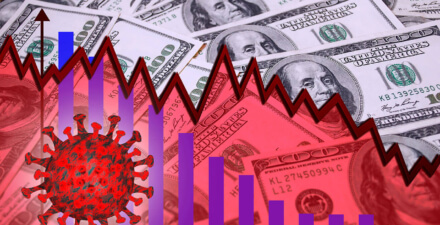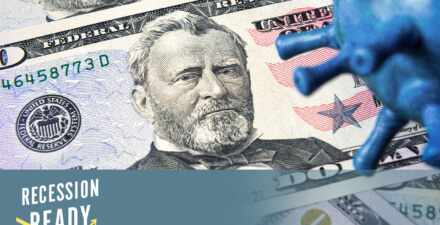Improving automatic stabilizers to combat U.S. economic recessions

The new coronavirus pandemic and the recession it caused show that the typical set of economic policies used to fight recessions in the United States should be designed to automatically turn on and off in a downturn. It is impossible to predict when the economy will fall into a recession and, on the other end, when it will recover. Making recession aid more automatic will allow relief to start quickly, making the recession less severe. It also would commit Congress to stay the course until objective economic criteria are met and the recovery is well on its way.
Without this commitment, aid for the most vulnerable can be caught up in partisan politics and deal-making when artificial deadlines loom. Many times, as during the Great Recession, vital aid is not renewed, causing the entire economy, and especially marginalized groups and communities, to suffer for years. Instead, Congress could set automatic stabilizers to start as soon as the unemployment rate increases in a recession. The benefits would then phase out and end when the unemployment rate returns to near its pre-recession level. Specifically, this should apply to:
- Enhanced jobless benefits
- Direct payments to families
- Aid to state governments
These automatic stabilizers would allow Congress to focus on novel aspects of the recession, whether they be public health, financial instability, or another cause, without having to relitigate fights over economically vital, previously authorized relief.
Key resources
“The coronavirus recession highlights the importance of automatic stabilizers,” by Greg Leiserson
This issue brief first explains what a recession is and what role public policy plays in fighting recessions, and then discusses a few important ways in which this recession differs from previous recessions. Finally, the issue brief explains why Congress should expand and reform the United States’ existing automatic stabilizers.
Recession Ready: Fiscal Policies to Stabilize the American Economy
A year before the risks of the new coronavirus and the ensuing recession enveloped our nation, this book advanced a set of six evidence-based policy ideas for shortening and easing the adverse consequences of recessions. With the use of proven economic triggers, aid to households and states would increase through the following six pathways during an economic crisis and only recede when economic conditions warranted.
- “Direct stimulus payments to individuals,” by Claudia Sahm
- Congress should create a system of direct stimulus payments to individuals to be automatically distributed when the unemployment rate increases rapidly. Direct stimulus payments to individuals are effective at boosting consumer spending in response to a recession and replace lost income.
- “Strengthening SNAP as an automatic stabilizer,” by Hilary Hoynes and Diane Whitmore Schanzenbach
- Congress should set SNAP benefits to increase by 15 percent during downturns. Research shows that every dollar in new SNAP benefits spurred $1.74 in economic activity during the deep recession in 2007–2009. Recipients quickly spend their SNAP benefits, which provides a rapid fiscal stimulus to the local economy.
- “Increasing federal support for state Medicaid and CHIP programs during economic downturns,” by Matthew Fiedler, Jason Furman, and Wilson Powell III
- Congress should automatically increase the federal share of expenditures on Medicaid and the Children’s Health Insurance Program during recessions. Declines in state revenues and increased demands on government programs, together with states’ balanced budget requirements, lead states to reduce spending, increase taxes, or both, during and after recessions. Those responses deepen recessions, slow subsequent recoveries, and deprive residents of valuable public and private goods. This proposal is designed to offset approximately two-thirds of state budget shortfalls.
- “Infrastructure investment as an automatic stabilizer,” by Andrew Haughwout
- The federal government should help states develop and maintain a catalogue of potential infrastructure projects and then expand infrastructure spending in downturns to counteract the declines in public investment that typically accompany recessions.
- “Unemployment Insurance and macroeconomic stabilization,” by Gabriel Chodorow-Reich and John Coglianese
- Unemployment Insurance is one of the most important existing automatic stabilizer programs. Congress should make reforms to the base program, including new triggers to expand the program in recessions.
- “Improving TANF’s countercyclicality through increased basic assistance and subsidized jobs,” by Indivar Dutta-Gupta
- Congress should make reforms to the Temporary Assistance for Needy Families program to expand federal support for basic assistance during economic downturns and create an ongoing job subsidy program that is more robust in recessions. Safety net programs can be a crucial backstop for families struggling in hard economic times. Unfortunately, because of its block grant structure, the TANF program is unresponsive to changes in need and unhelpful for mitigating the effects of recessions. This proposal would make it more responsive to families’ real economic needs.
Top experts
- Claudia Sahm, macroeconomic policy director, Washington Center for Equitable Growth
- Gabriel Chodorow-Reich, associate professor of economics, Harvard Univeristy
- Indivar Dutta-Gupta, adjunct professor of law and co-executive director, Center on Poverty and Inequality, Georgetown University
- Jason Furman, professor of the practice of economic policy, Harvard University Kennedy School; nonresident senior fellow, Peterson Institute for International Economics; and a member of Equitable Growth’s Steerinig Committee
- Diane Whitmore Schanzenbach, the Margaret Walker Alexander professor of education and social policy, Northwestern University
- Jay Shambaugh, professor of economics and international affairs, Elliott School of International Affairs at The George Washington University, and a nonresident senior fellow in economic studies, The Brookings Institution
- Hilary Hoynes, professor of economics and public policy, University of California, Berkeley, and the Haas distinguished chair in economic disparities, UC Berkeley’s Hass School of Business, where she also co-directs the Berkeley Opportunity Lab
To view the other policy sheets in this series, please click here.






